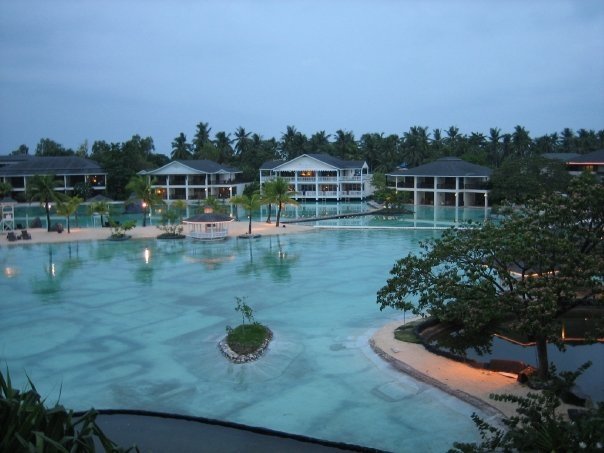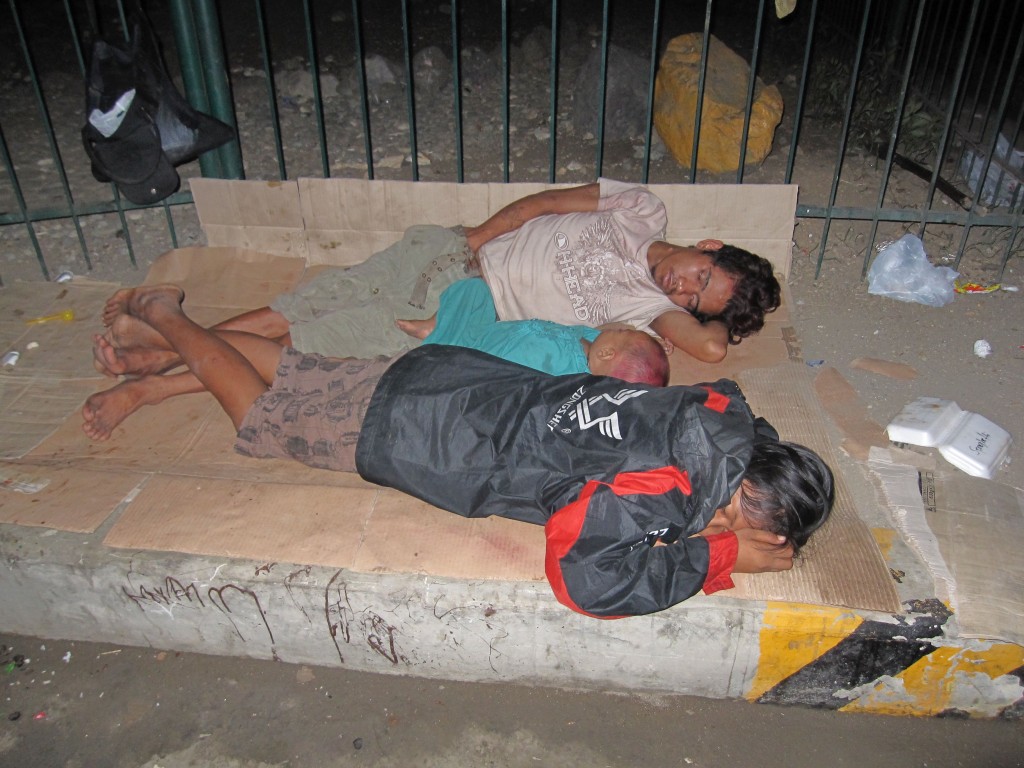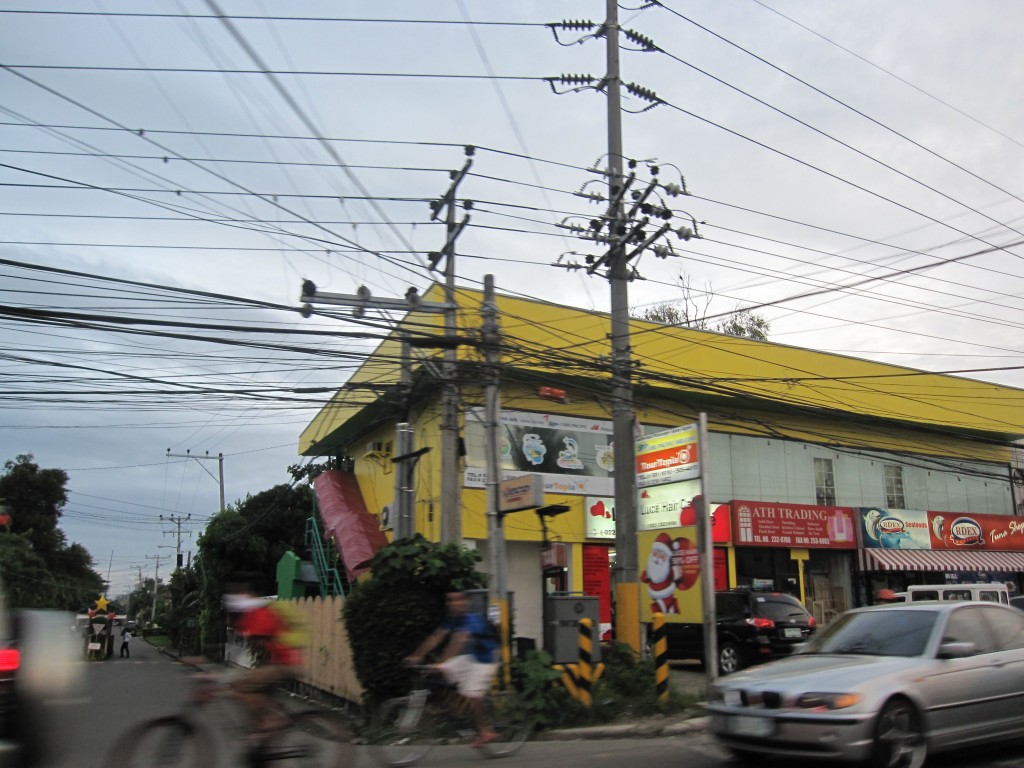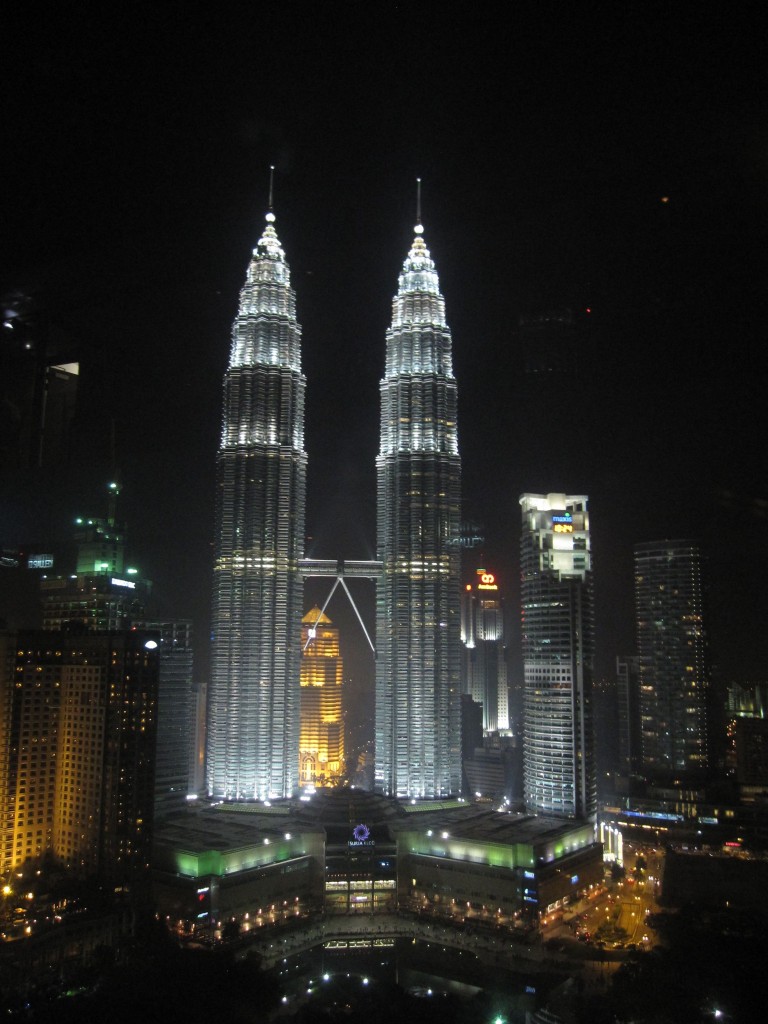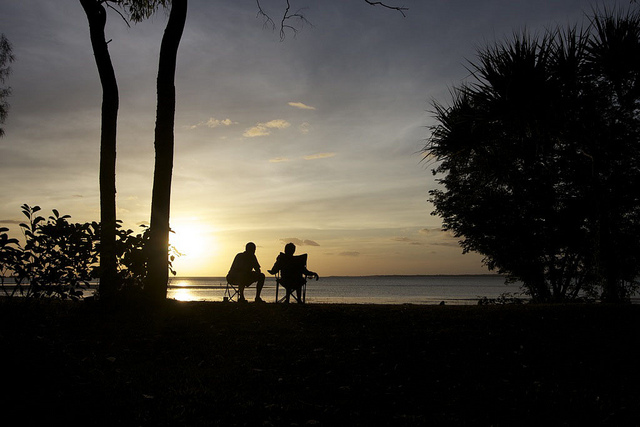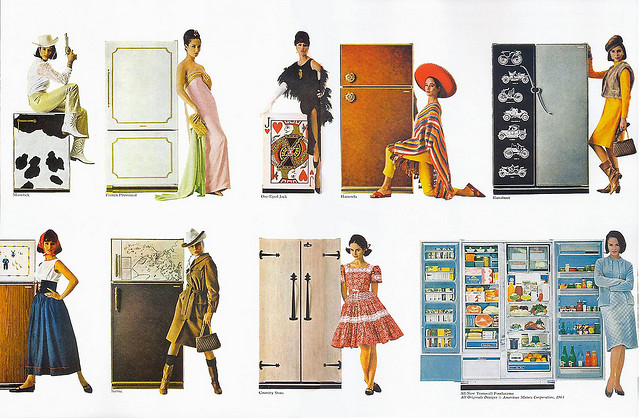Two years ago, twenty Dutch friends and family flew to Cebu, Philippines for our wedding ceremony. I was very excited to show them my city. We had a full program laid out that included the best beach and island resorts, parties in upscale venues and the best sights and sounds Cebu has to offer.
So I was a bit miffed after the welcome dinner we organised for them in a top resort when I asked them if they were having a good time and most reactions were along these lines:
“Yes, we are having a great time. But it feels a bit strange to be in such a beautiful place and in a lavish party with all these food when there is so much poverty a few meters away once you drive out of these gates.”
Towards the end of that night my brother-in-law, having imbibed a little bit too much alcohol as well, approached me with a wad of bills outstretched in his hands and with tears in his eyes he pleaded, “There are so much poor people here, please give this to them, please.” That night has become part of the wedding memory stuck in my head all these years.
Anyone who has travelled to a third world country is quite familiar with the following scenes and there are no shortages of footage on international news cables as well. Children knocking on car windows begging for money and food, chaos in public transport systems, messy networks of electric wires and power cables spanning the skyline, the list goes on. And if you’ve lived and grown up in these places as I’ve had, you become desensitized to it. You can even lead a lifestyle out of touch from this kind of reality that surrounds you everyday, something far removed from the eighty percent who live in poverty. All within a few kilometers from each other.
In the last two weeks since I got back here in Cebu, and as I drive out everyday from the gated subdivision where I reside, I pass by this young couple with a one-year old boy living under the flyover less than two kilometers away. They survive by begging on the streets and sleeping on cardboard boxes at night without blankets. This is nothing new to me. I grew up to these sights so why is it bothering me now?
I see the mess of black cables lending a third-world vista to our skyline and I think of the families who own the electric power supply, cable and phone companies. They live in palatial mansions with a coterie of house helpers and send their children to the most expensive private schools and it makes me wonder, what do they think about when they drive through the streets and see the ugliness they’ve created?
Politicians’ names are shamelessly emblazoned on skywalks, flyovers and bridges as constant reminders to its citizens lest they forget who initiated those projects. As if it was their very own funds used to erect it. These lawbreakers makers own city and beach houses and sprawling farming lands in the countryside. They spend their holidays abroad and send their children to universities in London and America. Do we need to ask who is paying for all of those? What if they get decent and honest paying jobs, even as top-level managers of corporations, would they still be able to lead the same lifestyles? And why won’t they get their act together to improve the plight of the country’s poor?
How do they feel driving around in their gas-guzzling, air-conditioned SUV’s when they have clearly failed the people they campaigned so hard to serve and the country they’ve profited so much from with their businesses?
I always thought that over time, as when you’ve seen more of the world and have travelled enough to understand the co-existence of wealth and poverty and the reasons why some countries have wider gaps in living standards among its people compared to others, you become less critical and judgmental and you attempt to rationalize and understand things at an intellectual level.
I come from this third world place and it’s hard to be rational about it. I’ve never been a patriot but Cebu has a special place in my heart. I believe in taking care of the square meter we revolve around in. I believe in leaving this world and the places we live in a better condition than when we arrived. This country is one of the most beautiful on earth and the Filipinos are some of the kindest people on this planet. There is so much potential to make it a liveable place for everyone, not only as the wealthy people’s playground.
On the plane ride from Singapore to Cebu, I overheard two Americans talking to each other.
One asked, “Do you like it here?”
The other replied, “It’s one of the poorest and dirtiest countries I’ve been to. But the people are good.”
Why is it always the foreigners who see these things?
I look back to that night when our culture-shocked Dutch guests were in tears, quietly brooding the changing landscapes of manicured gardens and swimming pools that glisten at night vis-à-vis the poverty of the masses. I don’t feel insulted anymore as I did back then.
I finally understand why the Dutch people cried.
The notion of an ideal marriage has been drummed up to us at an early age. All storybook romances lead up to the ultimate victory, when he gets down on his knees and proposes. And fairy tales always end with ‘and they live happily ever after’. This is where it all goes wrong because this statement could anything be but farthest from its truth.
Marriage is not a one-time triumph of woman getting man to propose. Consciously choosing to commit to someone and build a life together is a lifelong obstacle course – and not all survive. Asking two people to share everything together: their lives, decisions, choices, needs and wants is one of the most daunting challenges to expect from two human beings. And yes, it can be extremely fulfilling too — when it works.
Giving up what you want in order to compromise, or arrive at decisions on which both parties are truly satisfied is difficult. Just reaching a middle ground is victory enough at certain times. Add children to the equation plus the western concept of individuality and everything becomes overwhelming.
Women in general tend to lose more because we are the more giving gender. We are so used to giving up a lot of our own needs, and ourselves and so it becomes natural for us to take the back seat in pursuing our careers once we have children. We forget ourselves often.
We are born with the mother instinct, the nurturing nature, and we easily make room and space for everyone else in our lives. Pack up our bags and move to wherever our boyfriends live or where our husbands’ next job assignment takes us. Because “someone has to take care of the children and hold the fort while he goes out hunting.”
Women and the myth of work-life balance
But times have changed and we’ve realized since then that we are intelligent human beings equally capable of hunting and nurturing at the same time. So we invented the work life balance concept believing that we can have it all. We tried, and we find out it isn’t quite working out well as we expected. We thought we could juggle careers and take care of the household and have children in between. And we’re all ending up stressed out, distraught and feeling like we’re all failures. How do we find our inner peace from all these opposing schools of thought and external chaos?
In her book A Year by the Sea:Thoughts of an Unfinished Woman, author Jane Anderson and her husband decide to take a “vacation” from their marriage when she refused to follow him to his new job in another state and instead cocooned herself in a beach house in Cape Cod. Her two sons were all grown up and married by then. What follows next is a woman’s journey of self-discovery and communion with nature, and thereby regaining her own self. Classic.
Her story serves as a helpful reminder to every woman in midlife or any age actually, to take the time to nurture our own person, the woman inside of us, while we try to fulfill all the other areas of our lives.
I don’t want to wait until my children are all grown up and look back at all these years behind me feeling like a lifetime passed me by. I don’t want to wake up and realize one day that I’ve given too much of myself and forgotten me because I know the things I do now at thirty plus years will feel differently if I do them at fifty. I want to believe that I can have connubial bliss and raise my children and pursue my highest truth in this moment, as I live them.
What we really need after all is to be able to experiment with different models of how to make our relationships and our lives work. It may entail long stretches of time away from the conjugal state without feeling threatened if this means rejuvenating ourselves from the demands of family life. It might mean scaling down a bit on the career front. Or happily giving up our jobs for domestic bliss. Whatever works.
And we can certainly do with a lot of understanding, help and kindness from the people around us, and a lot less judgment and criticisms.
“What do you wish for?” I asked a dear friend.
“I want to live in the present, to be here now,” she replied.
“My problem is I live too much in the now!” I blurted out.
“But that’s good. How do you do that? Tell me. Tell me. You always look so radiant, so calm,” she pressed on.
How did I arrive here? It wasn’t so long ago that I was a member of the “I’ll-be-happy-when” tribe.
But this has been a year when death came harvesting people I know. Some I have shared many stories, dances and laughter with. Others I’ve worked closely together with in my previous employments and still others I have met socially on certain occasions. These were people about or around my age. In the universe’s natural order of things they would have been young parents or peaking at their careers.
Death came suddenly, robbing them of their lives. Aneurysm, meningitis, pancreatitis, a car accident and a shooting incident… they were all stealth and swift. I have had these deafening silences where the whole universe stands still after receiving the news one by one, over and over, in a matter of months from each other. The latest was a week ago. Somewhere out there are people grieving for and missing a son, a father, a brother, and a friend.
Death came and took my grandmother this year as well. Living abroad, I hadn’t seen her in two years except on skype. This is a passing away that’s easier to accept. She was ninety when she died, having truly lived her life and her years. And while the reality of knowing that I’ll never talk to her again in this physical world sets in, I have never felt her presence nearer to me than now.
But in those moments when I was gripped by anguish, fear and paranoia, my insecurities and indecision rose to the surface. Unhappiness and dissatisfaction engulfed me. I turned to my husband, a man I continue to learn so much from. He is never flustered, a perennial sunshine all throughout the gloomy days. There is a reason that the universe brought us together. At times I resent him for his calm demeanour to the point of accusing him that he is too relaxed that’s probably why I’m the one designated to stress out.

